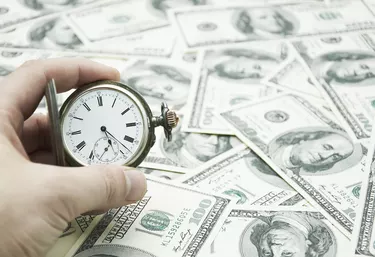
Not all creditors charge interest or fees on occasional late payments, but credit card issuers almost always do. To compute the interest fee on a late payment, you must first convert the annual percentage rate to a daily interest rate. Then, multiply the daily interest rate by your account balance and the number of days by which your payment is late.
Payment Policies
Video of the Day
Payment policies and interest charges vary by company and account. Most credit card issuers charge both an interest charge and a late payment fee if you fail to make a payment on time. Other companies -- such as utilities -- may charge only a late payment fee or provide a grace period for late payments. Investigate the payment policies of all your creditors so you can avoid fees.
Video of the Day
Identifying the Daily Interest Rate
To identify your daily interest rate, divide your APR by 365. For example, if your APR is 20 percent, your daily interest rate is 0.055 percent -- 20 divided by 365. Numerically, that equals 0.00055.
Interest Fee Calculation
Extending the example, if you have a $2,000 balance on your credit card and you make a payment a week after the due date, the extra interest owed is $7.70 -- the product of (0.00055 x 2,000) x 7.
Add Other Late Charges
A credit card company can assess a late fee if you don't make the minimum required payment by your due date. Fees for late payments vary by credit card issuer, with some charging as much as $35. To calculate the total charges for a late payment, add any late payment fee to your extra interest owed.